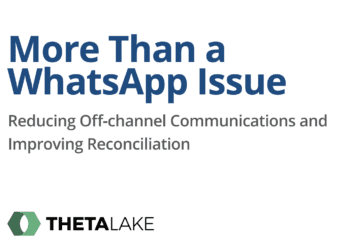With federal investigations pending, the autopsy of Silicon Valley Bank and resulting cascade of bank failures is only just beginning. Experts have suggested a faulty risk model is partially to blame, and while sharing customer data with its peers likely would not have saved the bank, business data analyst Sukirt Singh suggests SVB and other troubled banks could learn a thing or two from the data-sharing model embraced by several Dutch banks.
In recent years, data sharing has become a hot topic in the banking industry as well as other sectors. The benefits of data sharing are well-known and well-documented, including improved risk management, enhanced customer service and increased efficiency. However, with the rise of data sharing comes a new set of challenges, particularly with regard to compliance and governance. In the Netherlands, several major banks have agreed to share their data, which will have significant implications for the industry as a whole.
A small number of large, dominant players characterizes the Dutch banking industry. These banks are responsible for a significant portion of the country’s financial transactions and are subject to strict regulatory requirements. In recent years, there has been a growing recognition that data sharing could play a critical role in improving compliance and governance in the industry.
Several Dutch banks, including ABN Amro, Rabobank and ING, launched their data-sharing initiative to improve the quality and accuracy of their risk assessments, as well as to enhance customer service. By pooling their data, the banks hope to gain a more comprehensive view of their customers, which will enable them to provide more personalized services and make decisions that are more informed.
It Takes a Village: Preventing FinCrime Means Everybody Needs Skin in the Game
Banks bear the brunt of consequences for financial crimes amid a huge increase in anti-money laundering fines in 2022, making them an easy target when financial crime is suspected. But fighting fincrime isn’t the sole responsibility of banks, argues Samar Pratt of Exiger in London, who says a flawed approach allows financial crime to persist within the global system.
Read moreBenefits of bank data sharing
While the topic of data sharing among Dutch banks isn’t directly related to the failure of Silicon Valley Bank and subsequent turmoil in the banking markets, this crisis has once again highlighted the need for better risk management and compliance in the banking industry. Data sharing can play a crucial role in addressing these issues by improving fraud detection, customer profiling and regulatory compliance and reducing operational costs.
Here’s what Dutch banks have learned since launching their data-sharing program:
Improved fraud detection and prevention
By pooling data resources, banks can build more comprehensive fraud detection algorithms, identifying fraudulent transactions more accurately and efficiently. This can help prevent losses for both banks and their customers, ensuring that financial transactions remain secure.
Better customer profiling
With more information available on a customer’s financial history, banks can more accurately assess credit risk, helping to prevent over-lending and default. This can reduce the risk of bank failures and improve financial stability.
Increased regulatory compliance
By pooling resources, banks can more easily identify suspicious transactions and meet their compliance requirements under anti-money laundering (AML) and Know Your Customer (KYC) regulations. Sharing data can also help banks identify and report fraud, which is essential to complying with regulatory requirements.
Reduced operational costs
Data sharing can help banks reduce their spending on data management and processing, as well as their IT infrastructure. This can free up resources for more value-adding activities and improve overall efficiency.
Not so fast — data-sharing challenges
While the benefits of data sharing are clear, there are also significant challenges that must be addressed, the biggest of which is data privacy. Banks are responsible for safeguarding their customers’ data and must comply with strict regulations to ensure that this data is protected, regulations that vary depending on geography (new rules may be in the offing in the U.S., for example). Sharing data between banks raises a number of questions about how this data will be protected and who will be responsible for ensuring its security.
Two other major concerns are:
Data misuse
Banks have access to a vast amount of sensitive data, including personal and financial information. If this data falls into the wrong hands, it could be used for fraudulent or criminal purposes. Banks must take steps to ensure that their data is not misused and that they are able to detect and respond to any security breaches or other incidents.
Governance
When banks share data, they must agree on a set of common standards and procedures to ensure that the data is shared in a safe and secure manner. This requires a high level of coordination and collaboration between the banks, as well as a clear understanding of their respective roles and responsibilities.
In conclusion, the decision by several major Dutch banks to share their data represents an important step forward in improving compliance and governance in the banking industry. By pooling their data, these banks hope to gain a more comprehensive view of their customers, which will enable them to provide more personalized services and make decisions that are better-informed.
However, the challenges associated with data sharing cannot be overlooked. Banks must ensure that they are able to protect their customer’s data and prevent misuse, while also developing clear standards and procedures for data sharing. With the right approach, data sharing can be a powerful tool for improving compliance and governance in the banking industry. It is also important to note that data sharing is just one aspect of improving risk management and compliance. Banks must also prioritize governance, transparency and accountability in their operations to avoid a crisis like the SVB failure.




 Sukirt Singh is an experienced architect at HCL Technologies, specializing in machine learning and advanced analytics. He has almost eight years of experience in the banking, financial services and insurance (BFSI) sector and has worked with many global banks to develop solutions for financial crime compliance (FCC).
Sukirt Singh is an experienced architect at HCL Technologies, specializing in machine learning and advanced analytics. He has almost eight years of experience in the banking, financial services and insurance (BFSI) sector and has worked with many global banks to develop solutions for financial crime compliance (FCC).







